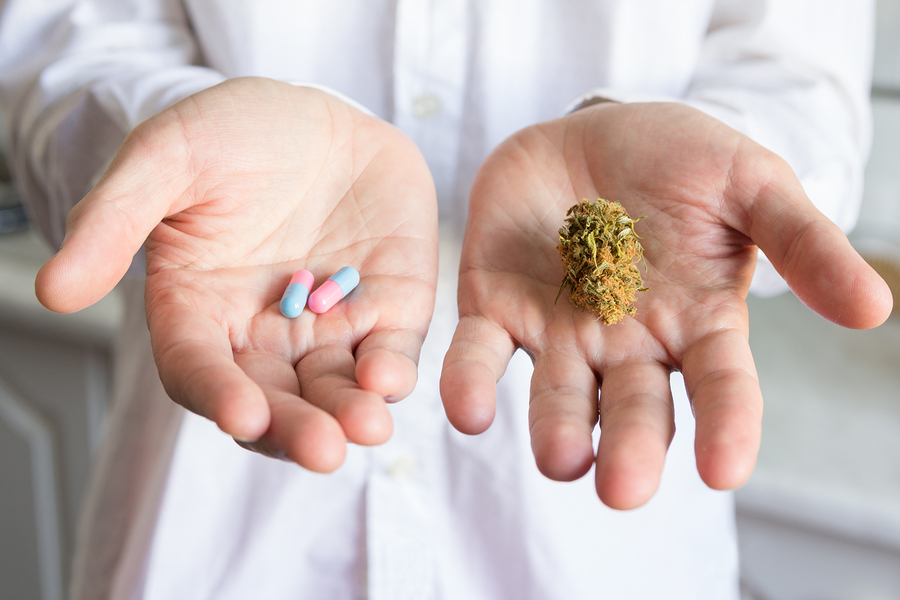 Let me clarify two things. I’ve never smoked marijuana in my life, and this post has nothing to do with recreational marijuana use.
Let me clarify two things. I’ve never smoked marijuana in my life, and this post has nothing to do with recreational marijuana use.
But that’s a big reason why the conversation about cannabis for pain relief goes off the tracks. People automatically associate marijuana, or cannabis, with illegal drug use. What they don’t understand is that you can consume cannabis to help relieve pain without getting high.
I use turmeric, curcumin and boswellia in clinical practice every day. These are herbals, each with its own uses and benefits. Cannabis is also an herbal that works for pain. Unlike opioids such as OxyContin and Vicodin, cannabis is non-addictive and has no side effects when properly administered.
There are two main molecules among the more than 80 cannabinoids found in cannabis. The mind-altering component is tetrahydrocannabinol, or THC. The component that helps with pain is cannabidiol, or CBD. It can be isolated from other parts of the marijuana plant.
CBD doesn’t make you high and it doesn’t have to be smoked. CBD oil provides the patient with higher levels of the most potent, pain-relieving chemicals in smaller doses.
Tons of research has been done in the last decade to prove this fact, yet adoption has been slow. Many people still think any cannabis consumption, even for medicinal purposes, should be illegal. The FDA classifies cannabis as a Schedule 1 drug, the same category as heroine and LSD. Oxycodone is a Schedule 2 drug.
This is nonsense. We’re in the midst of an opioid epidemic that claims tens of thousands of lives each year and leaves many more people addicted, from young children to seniors.
If you can take a non-addictive herbal like cannabis for pain control without the risk of side effects, why isn’t cannabis on the prescription pad of every doctor in America?
Easy answer – there’s no money in cannabis.
The pharmaceutical companies can’t control cannabis because it’s an herbal. Cannabis treatment isn’t covered by any health insurance plans in New Jersey, including Medicaid. If a physician wants to prescribe cannabis, and a patient is open to trying cannabis, the process is incredibly complex.
To administer cannabis, you have to be a registered Medicinal Marijuana Program (MMP) physician through the NJ Department of Health. To register, the physician must possess an active controlled dangerous substances registration issued by the NJ Division of Consumer Affairs. However, the state doesn’t provide medical education courses specific to the MMP.
To receive cannabis treatment, you have to be certified to have an approved debilitating medical condition by an MMP physician. Once approved, you have to go through a complex application and registration process. You also have to pay a $200 fee. If you qualify for Medicaid, food stamps and other state and federal assistance programs, the fee is $20.
According to the NJ Department of Health, there are a limited number of conditions that have been approved for cannabis treatment, including:
Other conditions can be treated if the patient is resistant or intolerant to “conventional therapy,” including:
Using a safe, non-addictive herbal like cannabis requires jumping through hoops, yet doctors can hand out highly addictive opioids like candy. What’s wrong with this picture?
It’s time for people to take their heads out of the sand, starting with the medical establishment, insurance carriers and government agencies. Cannabis is an effective option for the treatment of pain, with far less risk than opioids. It has worked wonders for people in pain who found no relief from other drugs or were worried about addiction.
It’s about pain relief, not getting high. Let’s become educated about all safe treatment options, as well as the unsafe treatment options that are prescribed far too often.